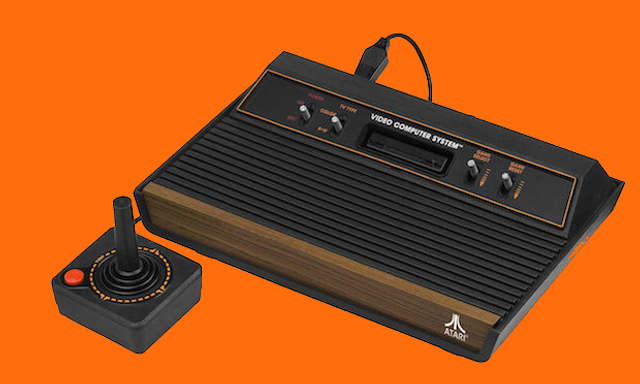There's a certain and pronounced irony, known to anyone's who into gaming, that by the time you reach an age where you'll able to afford all the things you would have wanted when you were younger, you simply won't have the time to do so.
Chances are you're in your mid twenties to early thirties, you're in a decent job, you may or may not be in a relationship but you've got a social circle and a calendar to keep up with. You work five days a week, maybe spend the weekend cleaning your house, running errands, maybe socialising by going to the cinema or meeting up with friends for food, drink, whatever. Now you add in children and any kind of social life goes out the window. The nature of having children is that you give over what little time you have to them because, well, that's parenting.
You probably played games a lot when you were younger, most likely from an early age that's linked to some key memories in your life. When the time came for you to have kids, the hope you'd had would that it'd be something you'd pass on to them.
Of course, games are still an expensive proposition and any available money you might have either goes to paying for more essential things for children or, if you're childless, goes into saving for a house, a car, maybe some kind of a holiday or big-ticket purchase or investment. At best, you'll probably find maybe a couple of hours - three, at best, if you're lucky - to sit down and play something. Then comes the inevitability of your phone going off mid-play, your partner wants to use the television or is trying to make plans for the evening, and your gameplay is interrupted by life in general.
It happens, and we all know it happens, and the uninterrupted moments you get with a game mean that you've got to be more assiduous with how you play. Take, for example, FIFA 18. You can play a couple of matches in the space of twenty minutes, either with a friend online or against the computer. Battlefield, Overwatch or Call Of Duty, you can maybe fit in a couple of rounds of Deathmatch if you've got the time. Skyrim or any kind of RPG, forget about it. You need to devote hours of time to reach a chapter-point in the story so you'll either add it to the growing collection of games you're going to play over a holiday weekend - maybe it's this weekend.
Ultimately, there'll come a time when you find yourself looking at your console of choice and thinking, "If I sell this, maybe we can put it towards a holiday this year." Or, failing that, a friend of yours - probably single - will offer to buy it off you or borrow it with the specious understanding that they'll return it whenever they want and knowing full well that day will never come. You'll note the outline of dust that you'll eventually remove away on your weekend cleaning patrols and, eventually, you'll come to understand that you made the right decision - you've put away childish things and become An Adult.
Any of this sound familiar?
In 2017, the ESA of America found that the average player was 35 years old, and that adult females represented a higher portion of the playing population than males under the age of 18. 67% of households in the US have a gaming device. A 2012 study by ISFE found that the split between male and female players was 54% to male and 46% to female, and of that grouping, 13% of males and 11% of females had played a game - of any kind, be it mobile or otherwise - in the past 12 months. Out of the five reasons listed as to why they didn't play videogames, not having time to play them was third.
The first - which accounted for 73% of respondents - was that they just weren't interested in them.
Statistics, of course, are just snapshots and don't tell the full story of lives. It's easy to pawn off a lack of interest in gaming on the realities of life, but could it be just that it doesn't entertain you anymore? Is there an age when there's a cut-off point and it no longer holds any interest? After all, there's only so much time you can sink into creating a character or perfecting a team in FIFA before you realise that while it might have been something you devoted a huge amount of time to, the net result doesn't add up to anything tangible.
That's one way of looking at, and probably the most understandable one. The other one, maybe more poetic, is that gaming - the precious few moments you get to indulge in it - becomes what it's meant to be taken as by the developers, the programmers, the writers and the creatives who built the experience. An escape. A way of shutting out the world and going beyond the mundane reality of weekends, mobiles going off, endlessly cleaning a house that never seems to stay that way.
Whatever the reasons you continue to play or don't, age isn't a deciding factor.
You are.









































































